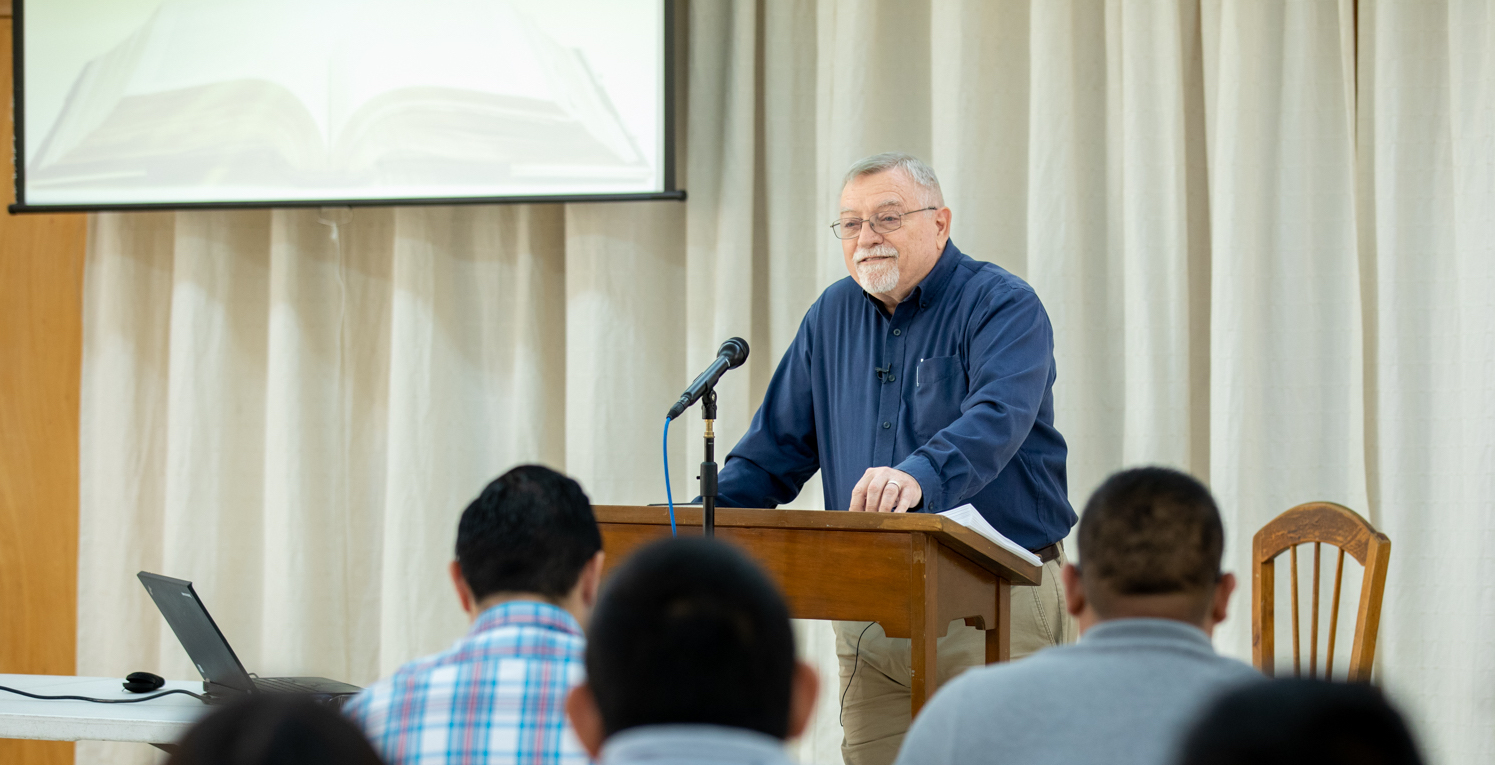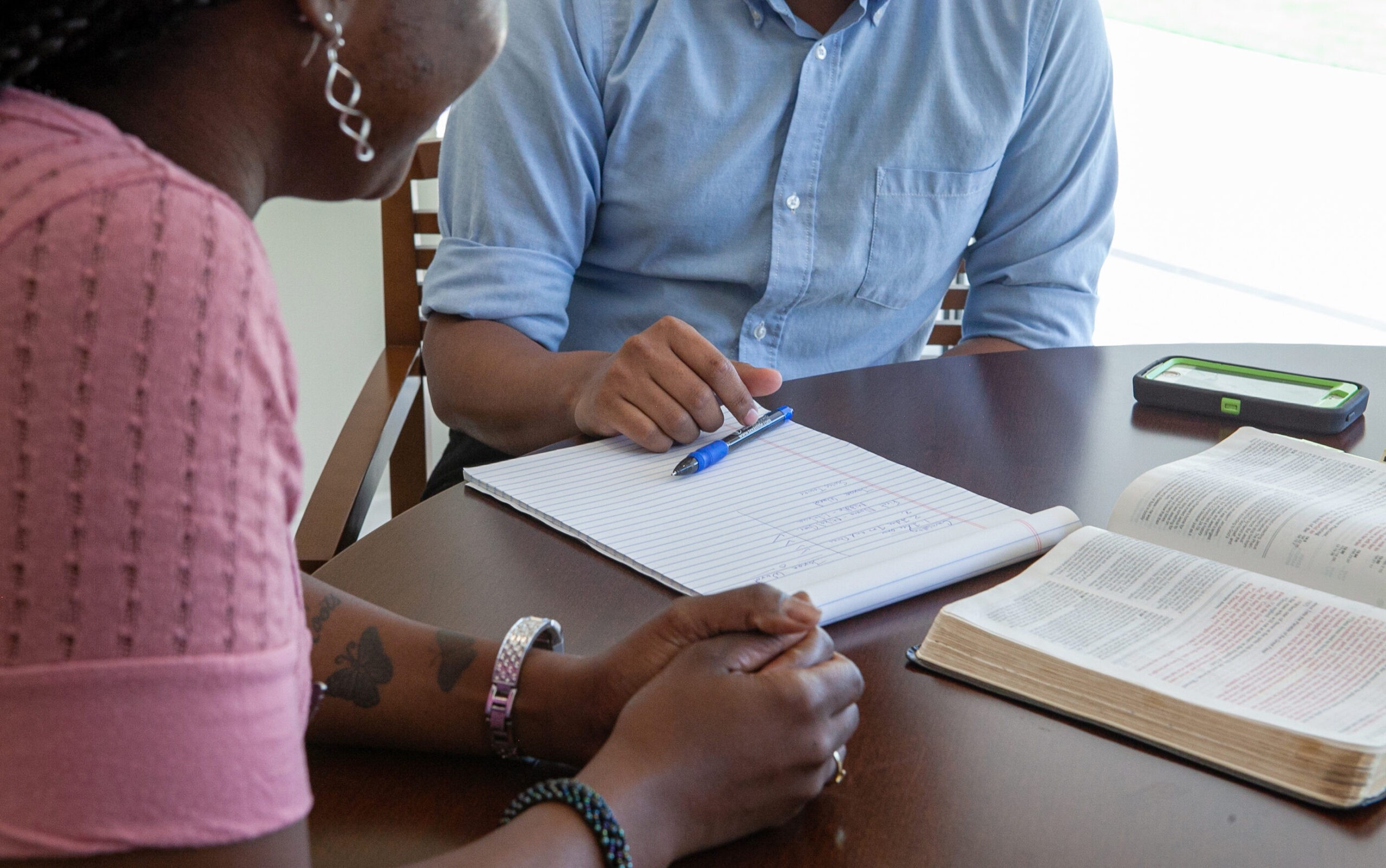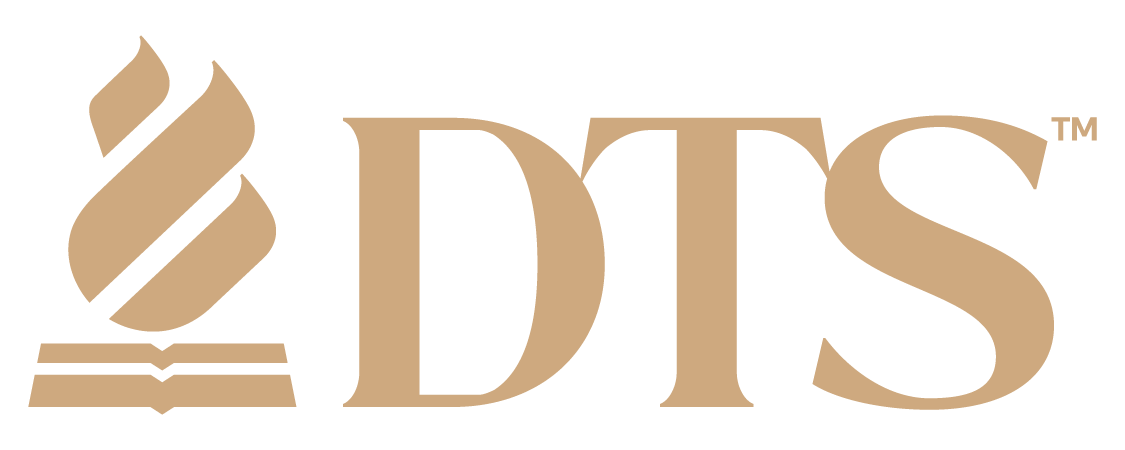
The DTS Doctor of Education degree program is designed to equip Christian educators for leadership and educational instruction roles in K–12, higher education, or other education institution settings.
The Doctor of Education program is designed to produce scholar-practitioners who can make a meaningful impact in various educational settings. The structure of the EdD allows students to remain in their current place of employment or ministry without relocating to Dallas. Each course assumes educational experience, and faculty endeavor to integrate learning with the student's present context and future goals.
Vision for the Program
We envision graduates from the DTS Doctor of Education program being a part of shaping the educational landscape of formal education in the 21st Century. This will be done through instruction in three key areas:
- Biblical and theological depth in the knowledge and practice of Christian education
- Practical understanding of research evaluation and implementation
- Skillful writing that leads to books and articles influencing decision makers
An Invitation for You…
Imagine being a part of a cohort that comes together on campus once each fall and spring to learn from the professors who have written the books and lived the practice of effective Christian Education. You will EXPERIENCE how Dallas Seminary does Christian Education by being immersed in it. You won’t just see it from a distance through a two-dimensional computer screen. You will rub shoulders, share meals, and drink coffee with professors and fellow classmates who are seeking to solve or have solved the same problems you face.
You are invited to come to DTS for classes one week each fall and spring so that you see, feel and experience formal education in community – in real time, with real people, building real friendships with others in your field. We understand online education is a part of our world, but we believe being in the same room with fellow learners is an irreplaceable part of your education.
Come join us… It will be worth the investment.
Overview
The Doctor of Education program is designed to produce scholar-practitioners who can make a meaningful impact in various educational settings. The EdD program allows students to remain in their current employment or ministry roles without relocating to Dallas. Each course assumes educational experience, and faculty endeavor to integrate learning with the student's present context and future goals.
Admission Requirements and Process
In addition, the following prerequisites apply to EdD applicants. All applicants must:
- Give evidence of growth and competence in educational ministerial skills and leadership;
- Have an academic record that demonstrates superior ability and shows promise of success in doctoral studies (3.0 or above is desired);
- Provide a GRE test score; and
- Hold a DTS Master of Arts in Christian Education (MACE) or its equivalent, or an MA in Education or a related degree from an accredited institution plus leveling courses as necessary to provide DTS MACE equivalence.
Specific prerequisites apply to EdD applicants depending on the applicant’s prior master’s-level preparation. Applicants with a theological master’s degree (MACE or its equivalent) are eligible to enroll in the 48-hour EdD program with little to no leveling work required. Applicants with a non-theological master’s degree in education or a related field are eligible to enroll in the EdD program after completing the appropriate leveling work. The final determination of an applicant’s eligibility to enter the EdD program is at the discretion of the Doctor of Education office.
Courses needed to meet the DTS MACE equivalence requirements must cover the breadth and scope of DTS’s curriculum and commitment to Scripture as prescribed by the EdD office. Courses required for MACE equivalence may be earned at DTS (including its extension sites) or other accredited institutions. For more information on MACE equivalence, please contact the EdD office.
Applicants must supply the requisite written admission materials and must have a personal or remote interview with members of the faculty. Prospective EdD students may apply for admission at any time. The normal deadline for applications for admission in the fall is March 15, but applications will be considered on a continual basis and individuals may be admitted as space allows. Further details on admission requirements and procedures are available from the Admissions office.
Coursework Requirements
The EdD program requires 48 credit hours broken down into the following areas:
- 27 hours – Core Cohort Courses
- 12 hours – Research Courses
- 9 hours – Dissertation Work
- You may request to substitute up to two courses based on prior academic or professional experience. Comprehensive exams covering courses taken are conducted before you begin the dissertation process.
The EdD program operates within the standard fall-spring-summer academic calendar. The Doctor of Education degree must be completed in no less than three and no more than six years from the time of matriculation.A minimum grade of B- is required for every course, the comprehensive exams, and the dissertation to count toward graduation. Additional information on EdD policies and procedures is provided in the Doctor of Education Handbook.
Transfer of Credit
Admission to Candidacy
Students may be admitted to candidacy for the EdD degree after the following requirements have been met:
(1) completion of all residency requirements leading to the degree;
(2) the satisfactory completion of 39 semester hours of coursework – which includes an approved Prospectus; and
(3) successfully completing and passing comprehensive exams (written and oral portions).
Students must be admitted to candidacy before they may be registered for their Literature Review and Dissertation courses.
Admission to Candidacy
Students may be admitted to candidacy for the EdD degree after the following requirements have been met: (1) completion of all residency requirements leading to the degree; (2) the satisfactory completion of 39 semester hours of coursework – which includes an acceptable Prospectus; and (3) successfully completing and passing comprehensive exams (written and oral portions).
Students must be admitted to candidacy before they may be registered for ED7250 – Dissertation.
Dissertation Requirements
Students must complete all required coursework and pass their comprehensive exams before being registered for Literature Review and Dissertation.
The dissertation is the student’s major research project in the degree program. It should be directly related to his or her educational/professional interests and must make a significant contribution to the field of education. The length is to be appropriate for the subject as judged by the student’s dissertation committee.
Students will develop a Prospectus during ED7240 outlining the plan for the research interest being pursued. A dissertation committee will be selected by the student at this time consisting of a dissertation chair and one or two other readers. This committee must be approved by the EdD office.
Students will write a Proposal which covers chapters 1 – 3 of the dissertation. The Proposal must be defended by the student and approved by the student’s dissertation committee before research/data collection may commence.
Upon successful written completion and defense of chapters 1 – 5 of the dissertation, the student will be considered as having met the dissertation requirements. The student must meet the doctoral standards of research, content, and format to complete the dissertation requirements.
Details on the procedures and deadlines for the Prospectus, Proposal and dissertation defense are available in the Doctor of Education office and in the EdD Dissertation Guidelines Handbook.
Graduation Requirements
To graduate with the DTS Doctor of Education degree, students must satisfactorily complete their coursework, pass comprehensive exams, and compose and defend their dissertation. Coursework includes 39 hours of core and-research class offerings. A minimum grade of B- must be received in every course credited toward graduation and on the dissertation.
The completion of minimum requirements does not automatically qualify a student for the degree. Students must be approved by faculty for graduation and be in adherence to the following doctrines: the authority and inerrancy of Scripture; the Trinity; the full deity, and humanity of Christ; the spiritual lostness of the human race; the substitutionary atonement and bodily resurrection of Christ; salvation by faith alone in Christ alone; and the physical return of Christ.
Diplomas will not be awarded, transcripts issued, or placement assistance provided unless all financial obligations to the seminary and/or the student loan program are current.
The Curriculum
Core Courses
- Historical & Philosophical Foundations of Education
- Foundations for Faith Integration in Formal Christian Educ.
- Instructional and Learning Theories
- Teaching for Spiritual Formation
- Biblical & Theological Foundations of Leadership
- Administration & Leadership in Formal Christian Education
- Legal Issues in Formal Education
- Leading through Change, & Conflict
- Writing for Academic Publication
Research Courses
- Statistics for Educational Research
- Quantitative Research
- Qualitative Research
- Empirical Research: Critical Inquiry & Research Design
- Research Problem / Literature Review
- Dissertation
Program Details
Program Goals
Students in the EdD program will:
- Integrate a biblical and theological framework with educational theories that lead to improved practices and outcomes in educational leadership, teaching, and student development
- Demonstrate biblical, competent, and contextualized personal / organizational leadership skills and administrative practices
- Demonstrate competent writing skills suitable for academic publication or communication with stakeholders in their given educational setting
- Exhibit biblically and theologically sound research in the social sciences that provides contextualized solutions leading to improved educational practices and results
EdD FAQS
What is the difference between a PhD and an EdD?
The PhD usually prepares scholar teachers who contribute to education through research and teaching in the classroom. The EdD prepares educational leaders to fill leadership roles in K-12 and higher education as well as teach on a limited scale in the classroom.
How is the EdD program structured?
Our program is cohort-based. That means you will start with a set group of students in the fall and work to progress through the entire program together. Our courses are also seminar based. While we do have some lectures, deeper learning is achieved by the discussions, presentations, and active learning activities planned during the Intensive Week. We operate on the normal fall-spring-summer schedule.
Do I have to come to campus for classes?
Students are expected to come to campus for one week each fall and spring for our Intensive Week of instruction. You will participate in planned online meetings or instruction leading up to this week in preparation for your time together.
During the summer, you have the option to come to campus or join your courses remotely during the summer intensive week of instruction.
We have the expectation of you coming to campus in the fall and spring because we believe in-person instruction allows you to see, hear, feel, and truly experience the educational atmosphere DTS provides. While on campus you will participate in regular leadership activities, faculty meetings, chapel, and other special events that allow you to see how we do educational leadership. You get to spend time with your professors on campus and at times in their homes.
Even in a world of online classes, you do educational leadership in person with people. We believe the reality of life-on-life instruction can never fully be replaced by online instruction only. Our faculty model educational leadership in ways that are contagious. When you come to campus, we share life together.
Do I have to live in Dallas to attend classes?
No, you do not have to live in Dallas to be a part of this program. You may stay in your current ministry location while you are earning your EdD degree. We have people across the country and around the world who are a part of our EdD program. You just need to make arrangements with your employer to be in Dallas for one week each fall and spring. During the summers you have the option to come to Dallas for class or join remotely.
What are courses like?
Our courses run during the normal fall-spring-summer academic calendar. They are structured in an Intensive Week format which means you gather for classes one week each fall, spring, and summer. You will attend two (2) classes in a given Intensive Week. One class meeting will be Monday – Wednesday. The other class will meet Thursday – Saturday.
Students prepare for each Intensive Week by reading required books/articles and completing practical assignments. Whereas undergraduate and graduate school is often mostly lecture, our EdD courses are primarily seminars. There is some lecture while the professor introduces a topic or a student makes a presentation, but then we launch into discussion and problem-solving exercises where real-world educational issues are addressed. We learn best when we learn with and from each other.
What degree and requirements do I need in order to start my EdD?
Applicants must meet the following requirements:
- Hold the DTS MACE (or its equivalent), the MDiv, ThM or other theological master’s degrees plus leveling courses as necessary to provide DTS MACE equivalence. Applicants may also hold a Master of Education (MEd) degree plus leveling courses as necessary to provide DTS MACE equivalence.
- Have an academic record that demonstrates superior ability and shows promise of success in doctoral studies.
- Test results from the GRE
- Be able to affirm agreement with the seven essential points from our doctrine statement.

Financial Aid
Through our donors and Foundation, we are able to offer hundreds of scholarships to students every year.

Logos Bible Software
Every student at DTS receives a copy of Logos Bible Software customized with additional commentaries and resources, and DTS courses integrate Logos into assignments and learning.
